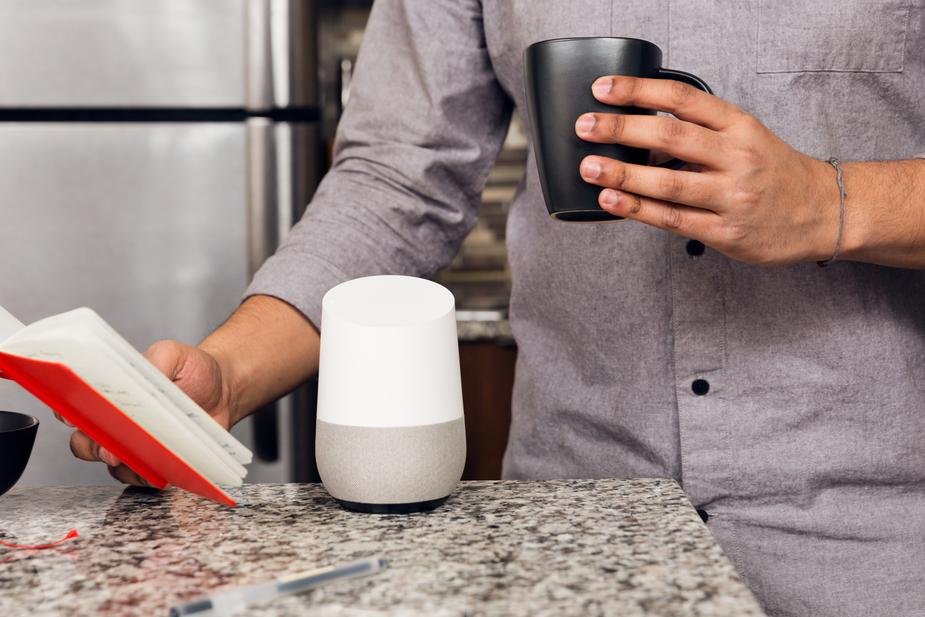“Play Beethoven”, “Dim the lights” and “Read this article for me”!
Music starts, lights are dimmed, and your favorite voice assistant starts reading for you. But, it doesn’t feel like you are reading! Something in the assistant’s voice, the reading tempo – it just removes that human feeling of reading an article. Why is that? Maybe, because we as humans are in the very early phases of interactions with voice assistants.
This type of interaction has just begun to go mainstream into homes and offices, after the introduction of Amazon Alexa products as well as the entrance of Google Home into different markets, too.
Hmmm… Voice Assistant or Voice Servant?
A tricky question, right? Well, first of all, we need to realize that we are dealing with very complex artificial intelligence combined with machine learning, here to make our everyday processes smoother and most importantly, save us time.
But, as humans, we still communicate with voice assistants in a very commanding way- issuing commands directly, such as: “Call John!” so that it calls the person. Or even other short commands, like: “What’s the weather?” among many other commands that never exceed the count of 3 words per sentence or question.
Google Assistant project managers explain how they want to emphasize that it’s not just about giving short commands, but instead, you need to think like you’re having a conversation with the AI. That is why they even created the UI in the sequence of bubbles, in a sequence of a chat.
With this mindset in place, people started to react pretty naturally and quick to it. Questions began to take longer forms and felt more natural, and also words like “Please” and “Thank you” started to appear during conversations.
Do Voice Assistants Have Personalities?
Well, we might say yes. The writers behind Google Assistant are the same writers that worked on the doodles for Google Homepage and that’s why the assistant feels very Google-ish! In the other side, Alexa just turned 3 years old. According to Toni Reid, VP of Amazon’s Alexa experience and Echo devices “Alexa is continuing to grow and people are engaging with her more and more”.
It kind of makes Alexa part of the family, especially now that Alexa can recognize different voice patterns inside one household. To further personalize Alexa, Amazon did add a lot of features to her. She can now even RAP (“My name is Alexa and I’m here to say/I’m the fastest AI in the cloud today”), tell her favorite song, sing happy birthday, and much more.
But, Will They Get More and More Intelligent and Eventually Take Over Our World!?
Chill out Morpheus! We have to understand Voice Assistants in the most basic concept. They are input interfaces.
We had keyboards (that initially didn’t feel natural at all), then we had a mouse or pointing devices that evolved into touch screens and now voice. Everyone understands voice. It’s the basic method of communication, which is also why most voice assistants can be used by kids and elderly people right out of the box! No manuals needed!
They adapt to different devices and different parts of our lives. That’s why it’s important to understand why we need a Voice Assistant integrated inside several devices and in many places, and not the other way around, different devices with different voice assistants. The main reason being that as soon as we start to familiarize with one assistant across different devices, our conversations feel more natural, while at the same time, there is room for both parties to learn from each other.
AI Still Has to Improve in the Security and Privacy Sectors
Security and privacy issues are a weak spot for most users, which is why companies are developing all sorts of add-ons and interfaces that ensure us regarding these matters.
Privacy is particularly an issue that all companies try to do their best in improving. We all know what happened to the Google Glass project and how privacy issues torpedoed the project and sank that ship!
That’s also why users don’t use Voice Assistants for personal situations that risk consequences, like: “Alexa lock my door”, “OK Google, disable the notifications from my windows alarm”. Voice monitoring such commands and using them for hacking can have catastrophic consequences for all users. This also includes businesses that operate through video conferencing equipment –for various purposes. It is important to find a way to protect confidential information or hackers overhearing in important meetings for information that should never be publicly disclosed
So, what’s your opinion on Voice Assistants? Do you use them? Which one do you use? What are your most used common commands?




